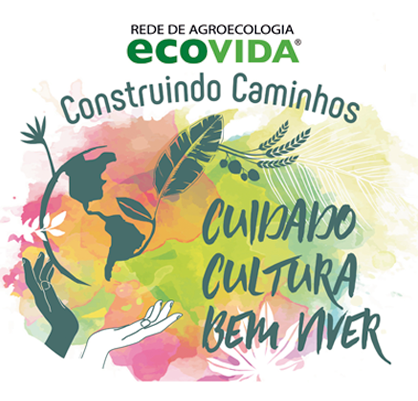
The Ecovida Network is a pioneer in the development of Participatory Certification or Participatory Guarantee Systems (see Participative Guarantee Systems) in southern Brazil. It was created in 1998, as a result of the articulation initiated years before by NGOs and farmers' organizations that opposed the green revolution and agribusiness. It currently has 27 regional centers, present in 352 municipalities. In total, it has about 340 farmer groups covering some 4,500 families, and 20 NGOs.
Farmers organize themselves into local groups, which join with other support associations or cooperatives and form a Regional Nucleus. These groups define the certification process that will be carried out, the Evaluation Commission (between farmers, consumers and support NGOs) that will validate each farm. In addition, they promote fairs and training around popular knowledge and agroecology.
The accreditation of the Network is recognized by the State, so this certification of organic production has the same validity as the audit stamps. Families can market these products at organic fairs (but not in supermarkets, for example).
The families commit to participate in the meetings, in the evaluation visits of other farms, develop a management plan, etc.
The Network is based on the following values:
Articulation in the recovery and conservation of life
- Contribution to the construction of sustainability together with development.
- Prioritize the quality of life with quality food, education, health, leisure and culture
- Have agroecology as a basis for the sustainability of development.
- Articulation organized in network and horizontal
- Preservation of local organizational models
- Family and peasant agriculture.
- Strengthening and articulation of the social and solidarity economy
- Prioritize the direct relationship with consumers, local and regional commerce with perspectives of food security and sovereignty
- Opposition to any form of exploitation and oppression, be it economic, political, social, gender or generational.
And it is proposed as a mission:
- guarantee the popular identity of agroecology and promote it in all its aspects
- respond collectively to specific challenges
- value popular knowledge
- assume a brand or seal that identifies the ideology of the Network
- fight for the transformation for a just and egalitarian society, environmentally sustainable and economically viable for all.
- Creating networks
- Social movement, social organisation
- Peasant movement, Peasant organisation
